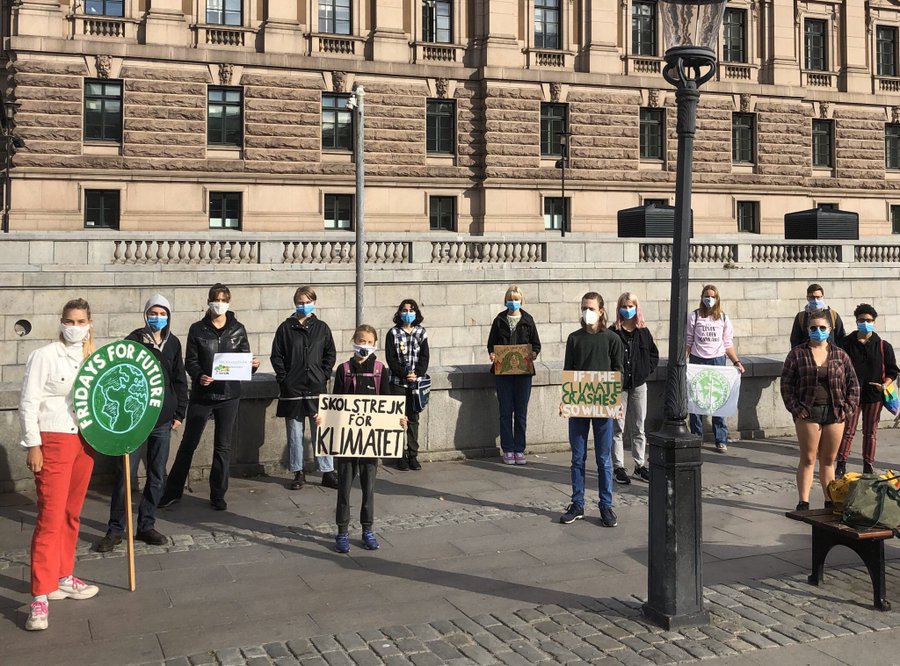TAX THE CHURCH!Religion and its services contribute $67.5 billion to the Canadian economy, calculates new study
Tyler Dawson

Provided by National Post A service is held at St. Eugene De Mazenod Catholic Church in Brampton.
Even as the proportion of the faithful in Canada declines, the activities of religious people and organizations account for nearly $67.5 billion of economic activity in Canada each year, according to estimates in a new paper from Cardus, a faith-based Canadian think tank.
“There is a broad, wide and overall totally beneficial effect of religion on the lives of everyday Canadians, on our country, on our social safety, and that applies to people not just who are religious,” said Brian Dijkema, vice-president of external affairs at Cardus. “It shows the broader public benefit of religion to Canadian society as a whole.”
The report, the first of its kind in Canada to tally up the economic impact of faith, suggests there are hard-dollar contributions to the economy, worth about $31 billion, which considers the revenues of faith-based charities, organizations and congregations. Then there is a further $37 billion in “halo effects,” which tallies up the economic impact of things such as substance-abuse support, or kosher and halal food sales.
“Understanding the socioeconomic value of religion to Canadian society is especially important in the present era characterized by disaffiliation from organized religion,” the report, released Monday, says. “Of course, faith has much more value than is represented by a dollar estimate, but such a valuation provides a new way of understanding the contribution of faith to Canadian society.”
Of the nearly 38 million people in Canada, roughly half (55 per cent) are Christians of one persuasion or another, according to a PEW study from 2019; a further 29 per cent are some variety of agnostic, up from just four per cent in 1971. A further eight per cent fall among other religions, such as Sikh, Hindu, Muslim, Jewish and Buddhist.
To come up with its estimates, Cardus trawled through charitable returns, school and religious health-care financial documents and religious publication revenues.
Of the direct economic contribution of $31 billion, the lion’s share is publicly funded Catholic schools, which is a total of $14.5 billion. The next most significant economic outlay is congregation revenue at $7 billion, then health care at $4.7 billion. The remainder is made up by independent schools, charities, higher education and religious media.
The most important part of the estimate, said Dijkema, involves the “halo effect” of religion.
“We’re talking about $35 billion worth of activity that takes place simply because these religious communities are committed to making the lives of their members and their community that much better,” he said.
The report catalogues several ways in which religion provides additional economic benefits: religious employees, for example, pay taxes; congregations spend in local economies; churches attract revenue-generating activities such as weddings and provide an “invisible safety net” of social services (Cardus says that 47 per cent of Alcoholics Anonymous meetings happen in churches.)
These estimates use modelling from other studies. To come up with its total indirect spending estimate of $37 billion, Cardus assumes congregations spend what they bring in, approximately $7 billion, but that represents only 20 per cent, per the other research, of total congregation activity.
Putting the R-word in politics: How religion has become the sleeper issue of the 2019 electionThe remaining 80 per cent is broken up among the aforementioned activities, again using percentages from other studies, and then the money is calculated from there, for example, 3.5 per cent, or $1.2 billion for safety net supports. The largest cohort, categorized as “individual impact,” is worth about $13.4 billion, or 38 per cent of the total. That includes the benefits, broadly, of providing support “to individuals, couples, and families,” the report says.“Housing, food banks, care for immigrants and refugees, care for those who are in abusive situations, often it’s people in religious communities who are the first responders to that,” said Dijkema.“Often people, when they think of religion, they think of people praying privately … but I think what this shows is the religious character of many communities in Canada have vast and under-appreciated public effects.”The study doesn’t consider some all potential effects of faith, though. While Christmas, for example, is worth about $10 billion to the Canadian economy, Cardus ignores it, since it is not necessarily directly attributable to faith.As well, Cardus cautions the study doesn’t account for some of the negative influences of religious life. They also say the “most important” limitation is that the estimate of the value of goods and services “is based on the proposition that the findings from other halo-effect studies can be extrapolated up to the national level.”
CARDUS IS A NEO CALVANIST THINK TANK FROM THE SOUTH AFRICAN BASED DUTCH REFORM CHURCH AND ITS FORMER RIGHT WING LABOUR THINK TANK THAT BECAME CLAC THEIR MANAGEMENT UNION AND NOW CARDUS. IT HIRES DUTCH SOUTH AFRIKANERS IT IS LINKED TO THE RIGHT WING REFORMED CHURCH MEMEBERS LIKE BETSY DEVOS IN THE USA AND THE AMERICAN RIGHT WING THINK TANK THE ACTON INSTITUTE. SEVERAL CANADIAN CALVINIST UNIVERSITIES CONTRIBUTE
TO CARDUS/CLAC.
SEE













